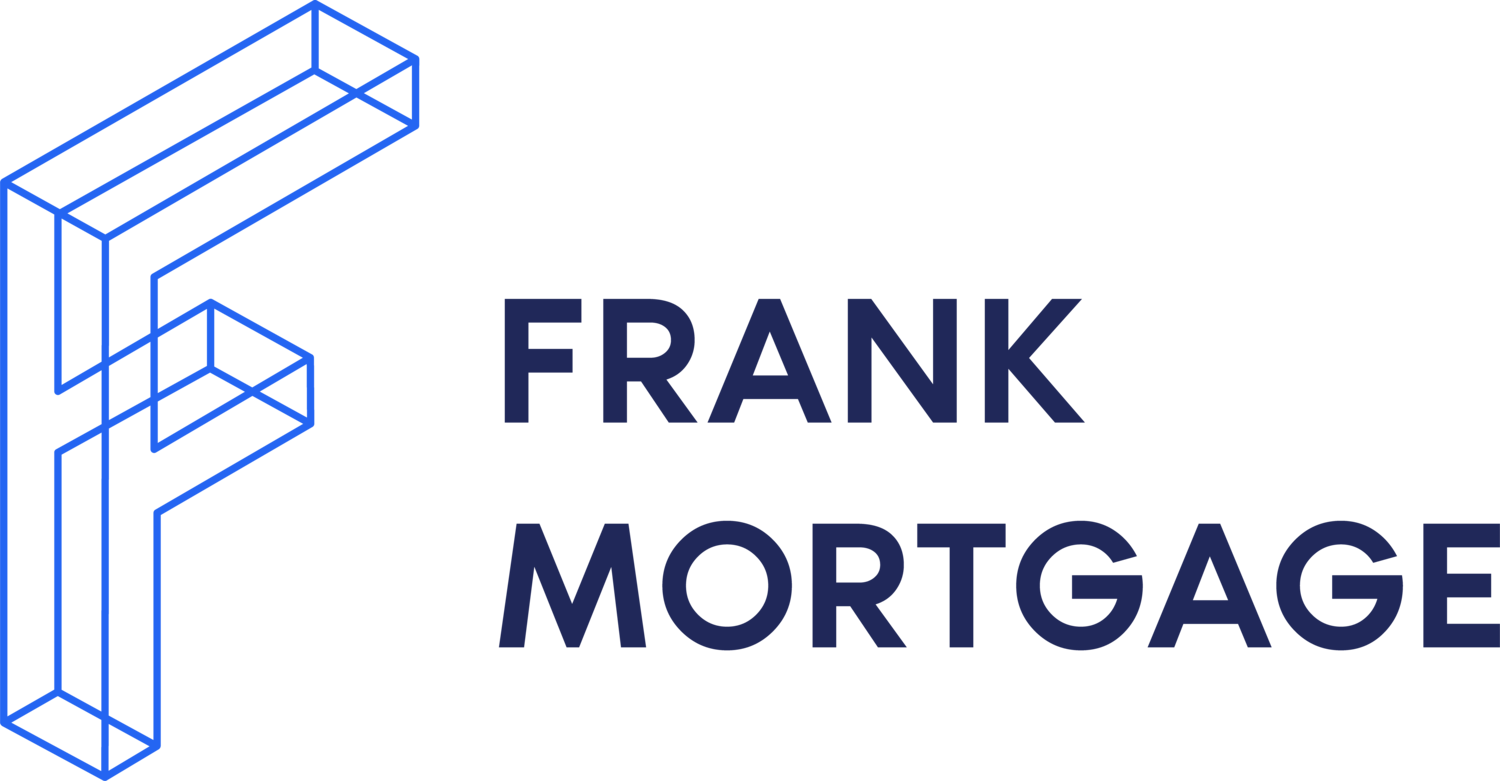Private Mortgages in Canada
A Comprehensive Guide

Have you been declined for a mortgage by a bank or other lender? Is your situation too complex for a traditional bank to approve? If so, then perhaps a private mortgage is an option for you. Before jumping in the private mortgage lending market, do your homework first.
Private mortgage lenders present an alternative, but they operate quite differently from institutional lenders. This blog post will delve into who these lenders are, how they operate, their key underwriting criteria, what they charge, and the pros and cons of using them. We will also highlight the risks associated with private mortgages compared to traditional lending options.
Who Are Private Mortgage Lenders?
Private mortgage lenders are individuals or private companies that provide residential mortgages using their own private funds. They operate independently from traditional lenders and are often unregulated businesses.
Private lenders include:
- Individual Investors: Individuals who have substantial savings or investment portfolios and are looking to earn diversified, stable returns through mortgage lending.
- Private Lending Companies: Small financial firms that specialize in offering mortgages and often focus on niche markets or underserved borrowers.
- Mortgage Investment Corporations (MICs): These are corporations that pool money from investors to provide mortgages. MICs allow investors to invest in real estate via pooled mortgages without having to invest the time and effort or take the risk of investing in an individual mortgage.
How Do Private Mortgage Lenders Operate?
Private mortgage lenders have a different risk appetite than banks. They often tend to focus more on the quality and value of the property rather than the borrower's creditworthiness. This is why you will find that many private lenders only lend in major urban markets where the properties are considered more liquid (i.e. There are more buyers if they must sell the property).
Here is a breakdown of how they generally function:
Private mortgage lenders source their mortgages almost exclusively through mortgage brokers. If you want a private mortgage you need to deal with a good broker who can handle the private mortgage process for you.
- Loan Application: Borrowers submit a mortgage application detailing their financial situation and property information.
- Property Appraisal: A property appraisal or evaluation is conducted to determine its current market value. The borrower has to pay for the appraisal.
- Loan Approval: Private mortgage lenders primarily assess the value of the property and its potential as collateral. They still confirm borrower identity, employment and income but are more flexible than banks when evaluating the borrower. Credit score is also not as important, although they all have minimum requirements.
- Funding: If approved, the private mortgage lender settles the mortgage by funding the mortgage amount, typically faster than traditional institutions. Sometimes they can fund a mortgage in a few days after an application is submitted. The mortgage closing and funding process is coordinated by your lawyer.
Key Private Mortgage Underwriting Criteria
Private mortgage lenders review the same risk factors as traditional mortgage lenders, but they often emphasize different criteria and sometimes don’t require as much documentation. They key underwriting factors for a private mortgage include:
- Property: The quality and value of the property is crucial. Private mortgage lenders use the property as collateral and may lend up to a certain percentage of its value (Loan-to-Value Ratio or LTV). This maximum LTV often depends on the location of the property (large urban centers are preferred) and the current condition of the property.
- Credit Score: While your credit score is not always a primary factor, some level of credit assessment might be performed. A private lender will have a minimum credit score requirement, but they are often lower than the minimums used by traditional lenders.
- Income and Employment: Income verification might be streamlined, but lenders will still consider it as part of the overall risk assessment. They need to conform you can make payments on the mortgage.
- Down Payment: Larger down payments can enhance the likelihood of approval and potentially result in better terms. The minimum down payment for a private mortgage is 20%. In some instances, the private mortgage lender will require a minimum 35% down payment.
Private Mortgage Rates and Fees
Private mortgage lenders typically charge higher interest rates and fees compared to traditional lenders. A-lenders have the lowest rates and do not charge origination fees for A mortgages. The best five-year A-mortgage rates today are near 5%. B-lenders charge higher rates as well as an origination fee. The best B-mortgage rates are about 6.3% and the B-mortgage origination fees are usually between 1% and 2%.
Here’s what you might expect from a private mortgage lender:
- Interest rates can range from 8% to 15% or more, depending on the risk involved and the borrower’s profile.
- Private lenders will charge an origination fee. This fee can range from 1.5% to 7%.
Private mortgages usually have interest-only payments. This means the mortgage balance does not amortize, since you are not paying any principal.
Pros and Cons of Using a Private Mortgage Lender
Pros:
- Speed and Flexibility: Private mortgage lenders can often process and approve loans more quickly than traditional banks, making them ideal for urgent needs or time-sensitive situations.
- Less Stringent Requirements: Private mortgage lenders may offer loans to borrowers with poor credit, income that is hard to verify or unconventional financial situations. Some private mortgage lenders also have flexibility for unconventional property types, such as raw land or mixed-use buildings.
- Customized Solutions: Private mortgage lenders are often more willing to tailor loan terms to fit individual needs.
Cons:
- Higher Costs: Interest rates and fees are higher, increasing the overall cost of borrowing.
- Shorter Terms: Loan terms are usually only for one year, although two and three-year terms are possible with some private mortgage lenders. This shorter mortgage term necessitates a quicker repayment or refinancing plan.
- No amortization: Being interest-only, there is no principal amortization. The balance you owe at maturity is usually the same balance you started with.
- Large Down Payment: Private mortgage lenders usually require a minimum down payment of 20%. There are some instances where they may require a minimum 35% down payment.
- Potential for Predatory Practices: In the unregulated world of private mortgage lending, it is possible that some private mortgage lenders may engage in less transparent practices. This is not to say they all do these kinds of things but there are some who are less trustworthy than others. It is essential to scrutinize the terms being offered and ensure there are no hidden fees or unfair conditions.
Borrower Risks from Private Mortgage Lending
Borrowing from private mortgage lenders involves several risks:
- Renewal Risk: With a one-year term o the mortgage, renewal comes quickly. Borrowers need to have an exit plan to renew the mortgage, preferably by moving up to a B-lender or an A-lender. If this is not possible the borrower needs to communicate with the current private mortgage lender ahead of time to be sure that renewing the mortgage with them is possible. A private mortgage lender is not required to offer a renewal and they are less inclined to do so in more difficult economic times than traditional mortgage lenders. Private mortgage borrowers should always have a plan B in mind.
- Lack of Regulation: Private mortgage lenders are less regulated than traditional institutions, which can result in less protection for borrowers.
- Potential for Aggressive Collection Practices: Some private mortgage lenders might have more aggressive collection practices in case of default. They will not be as patient with borrowers who miss payments.
Tips for Novice Mortgage Borrowers
- A private mortgage is your last option. Look into traditional lenders in the A-mortgage and B-mortgage space first. Only after confirming that those sources are not available to you should you consider a private mortgage.
- Do your research. Compare private mortgage lenders and their terms carefully. Understand the total cost of the loan, including interest rates and fees. A good mortgage broker can help you with this.
- Review the fine print. Ensure you understand all terms and conditions. Look out for prepayment penalties, hidden fees, renewal notice requirements and any other additional costs.
- Seek professional advice. Consult with an experienced mortgage broker or financial advisor who can help you navigate the options and make an informed decision.
Who Might Benefit Most from a Private Mortgage?
Those who can’t qualify with traditional lenders may be able to find a mortgage with a private lender. Some common examples of these situations include:
- Non-traditional or unverifiable income: If you have irregular income or income that can’t be fully verified with the typical bank documents or tax forms you may find it difficult to get financing from a traditional mortgage lender.
- High debt: Traditional mortgage lenders have strict debt servicing ratio requirements that you cannot exceed. This limits how much you can borrow, depending on your income and current debt levels. Private lenders allow higher debt servicing ratios, which allows them to approve borrowers that traditional lenders have declined.
- Poor credit: A poor credit history will reduce your credit score. If your credit score is below the acceptable score for traditional mortgage lenders (typically better than 620, or even 680 for insured mortgages) you can still be approved by a private mortgage lender.
- Property type: Some property types are not permitted by traditional lenders. Private mortgage lenders often have more flexibility for unconventional property types.
Conclusion
Private mortgage lenders can be a viable option for those who need a quick mortgage solution or are unable to find a mortgage with traditional mortgage lenders. However, it is important to be aware of the higher costs and potential risks associated with private mortgages. Understanding how private lenders operate and carefully considering the terms and conditions they offer will allow you to make an informed decision and find a mortgage solution that best meets your needs.
Whether you are considering a private lender as a necessity or an option, thorough research and due diligence are key to ensuring you secure a mortgage that aligns with your financial goals and circumstances. At Frank Mortgage we only deal with reputable private mortgage lenders that can help you get the financing you need while treating you fairly. If you would like assistance with your mortgage needs, please call us at 1-888-850-1337 or find us at www.frankmortgage.com.
About The Author

Don Scott
Don Scott is the founder of a challenger mortgage brokerage that is focused on improving access to mortgages. We can eliminate traditional biases and market restrictions through the use of technology to deliver a mortgage experience focused on the customer. Frankly, getting a mortgage doesn't have to be stressful.
Related Posts




Mortgage Brokerage Licensed in Ontario (#13204), British Columbia, Alberta, Saskatchewan (#514115), Manitoba, Nova Scotia, Newfoundland & Labrador, and New Brunswick (#230015752).
© Frank Mortgage 2025 | All Rights Reserved


